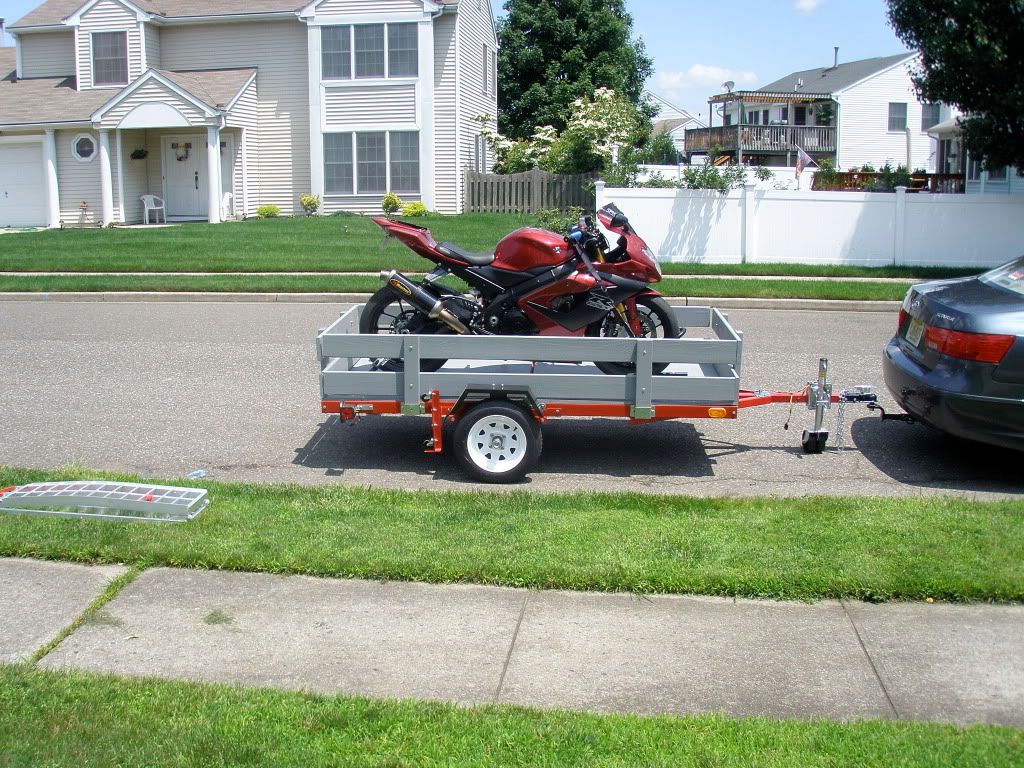jay956
New Member
Since the track bug has bitten me bad i need to start thinking of better way to transport my bike. I want to do as may track days next year as i can afford and renting a van every time isnt feasible. Ive got a 01 Nissan Altima, looks like i could get a hitch for under 300 installed. I know ive seen a lot of cars tows bikes but it seems like but after reading it looks like my car is rated to pull 1000lbs. Would a bike and a trailer be pushing that limit? I think my bike weighs just over 400 but i have no idea about trailers. Also has anyone used the uhaul motorcycle trailers? I dont have enough cash right now for a hitch and trailer so i was thinking just get the hitch put on and rent a trailer for $15. Id only be taking it to Summit which is about 2 hours away, and VIR which is about 3.

